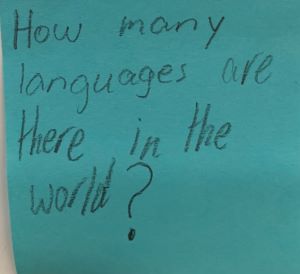
You’ll get different answers depending on which expert you ask, but according to the Linguistic Society of America the best estimate, at ethnologue.com, is about 7,000.
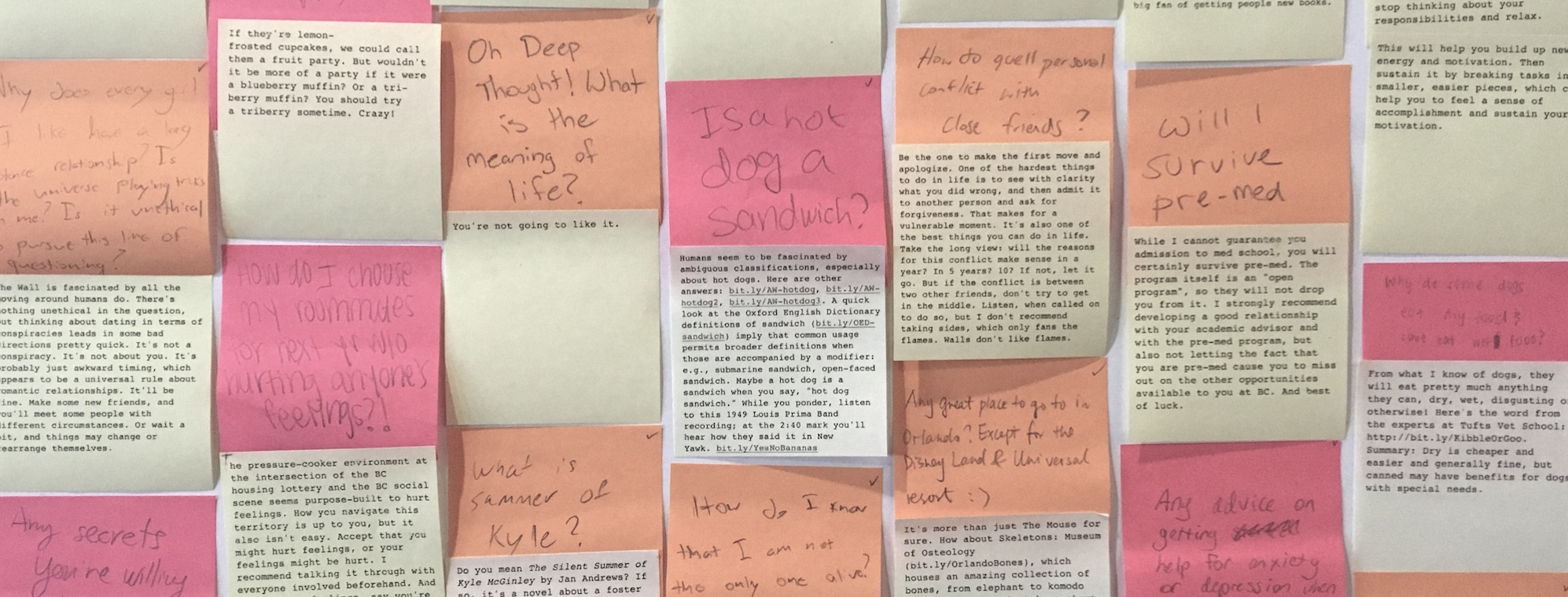
Answering questions at Boston College O’Neill Library

You’ll get different answers depending on which expert you ask, but according to the Linguistic Society of America the best estimate, at ethnologue.com, is about 7,000.
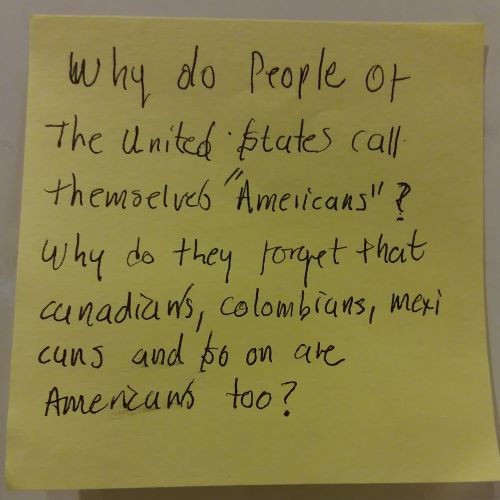
If we were called United States-ians, it wouldn’t really roll off the tongue as well. To the extent that peoples in other countries in the North and South American continents are also members of those continents, they can reasonably call themselves “North Americans” and “South Americans” in the same way that other people around the world call themselves “Europeans”, “Africans”, “Asians”, and “Australians”. Though no one really calls themselves after multi-continent land masses; “Eurasians” isn’t a popular rallying cry despite the existence of Russia and Turkey. Calling people from the USA “Americans” is simply a useful, easy-to-pronounce shorthand for “people from the United States of America”. And, to be fair, the USA is the only country in North or South America to also have the word “America” in its name.
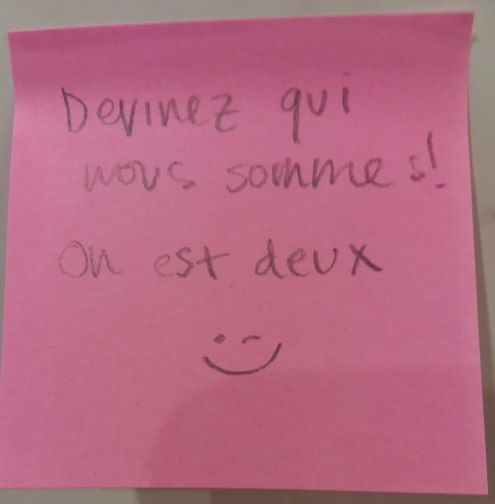
Je ne sais pas qui vous êtes, mais je suis content que vous soyez heureux.
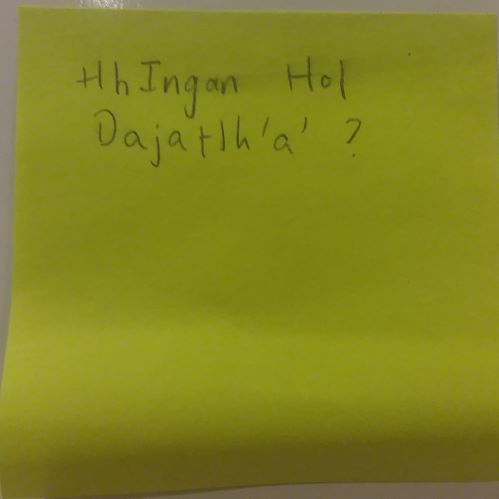
HIja’. loQ vIjatlhlaH
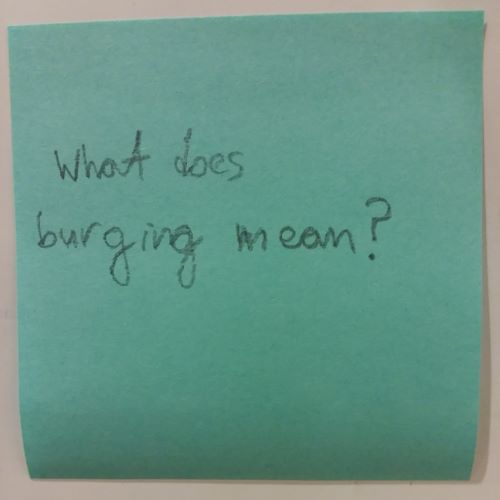
I’ve found such a wide variety of definitions that it must be one of many obscure and recently coined words that’s either highly situation-specific or has hopped into the meme and/or trolling-the-urban-dictionary category. Pre-internet, groups of people coined new words all the time; those words had brief, anonymous, unheralded lives. Now that those brief coinages get wider play on sites like Urban Dictionary, it’s become a game to try to boost their usage. If you’re playing that game, good luck! May “burging” be the next “yeet,” or if it really hits the big time, “jawn.”
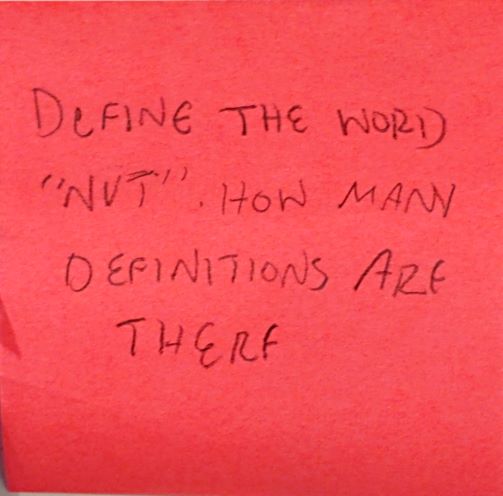
So many. The Oxford English Dictionary has over forty just for the noun and adjective forms, including some of the Urban Dictionary definitions. bit.ly/bc-nut. My favorite: “The projection or block at the lower end of the bow of a stringed instrument, to which the hair is attached, and which is now usually movable (typically by means of a screw) to allow adjustment of the tension of the hair. Also called frog.”
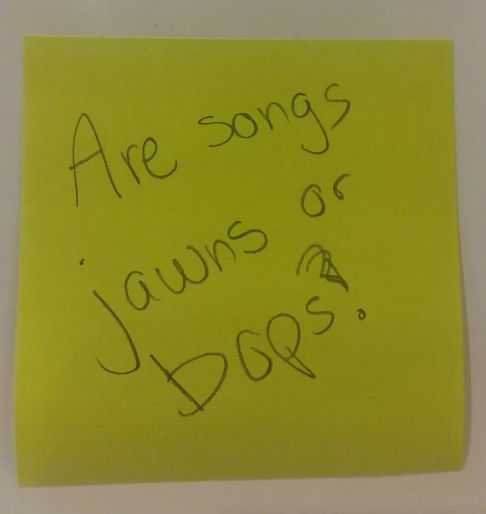
I had to consult with my Philly expert on this one. Technically, a song is jawn insofar as anything can be a jawn. But only a good song is a bop. e.g., “That new jawn by [insert band] is a bop!”
![Read all the [?] in today's New York Times. Is this a false rhyme?](https://library.bc.edu/answerwall/wp-content/uploads/2019/09/aw091619-1.jpg)
Yes. Of a sort. It is obviously not a perfect rhyme, which means it falls into the category of imperfect rhymes – for which there are many names (false rhyme, slant rhyme, near rhyme, etc.). Depending on how the lines are arranged, it could also be an internal rhyme. Not to judge anyone’s artistic abilities, but as a rhyme goes, this one seems to be a stretch. “By lines” has two syllables and the consonant before the rhyme is different from “New York Times”. You wind up having to speed up “New York” and stressing the word “York” awkwardly in order to make the meter work.
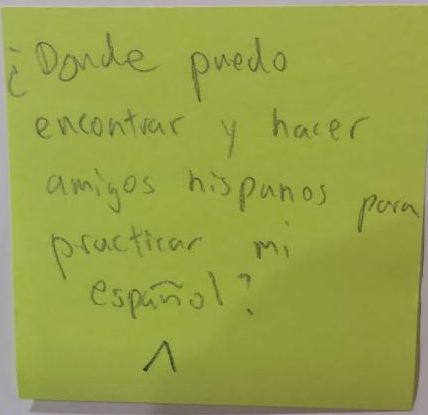
During the semester, the Roman Languages and Literatures Department offers an opportunity for Spanish conversation through the Café en español, which meets on a weekly basis. All students, whether or not they are enrolled in Spanish language courses, can participate. The Café meets on Wednesdays from 1-1:50 pm in Welch Dining Room, in the basement of Lyons.
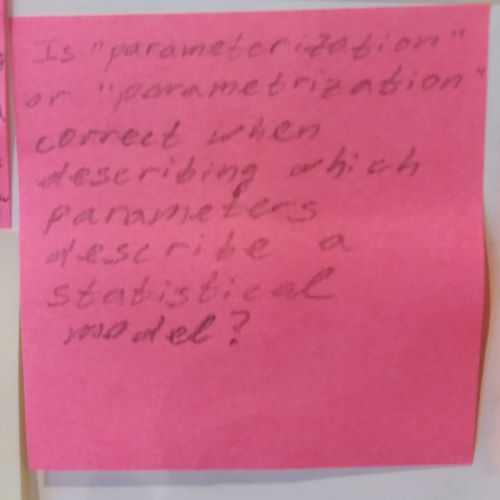
The Oxford English Dictionary recognizes both as options (and even parameterisation, imagine that!), so you can choose the one you like. I ran a Google Trends search to see usage of the 3 spellings over the past 15 years (bit.ly/Paramewhat); “parameterization” was the clear winner.
![你 认 识 我 吗?Responses: NO 傻 [Do you know me? NO. Fool.]](https://library.bc.edu/answerwall/wp-content/uploads/2019/07/aw071819-2.jpg)
Do I know you? Of course I know you. You’re the person who asked, “Do you know me?” in Chinese. And no, in spite of the comment, you’re not a fool.
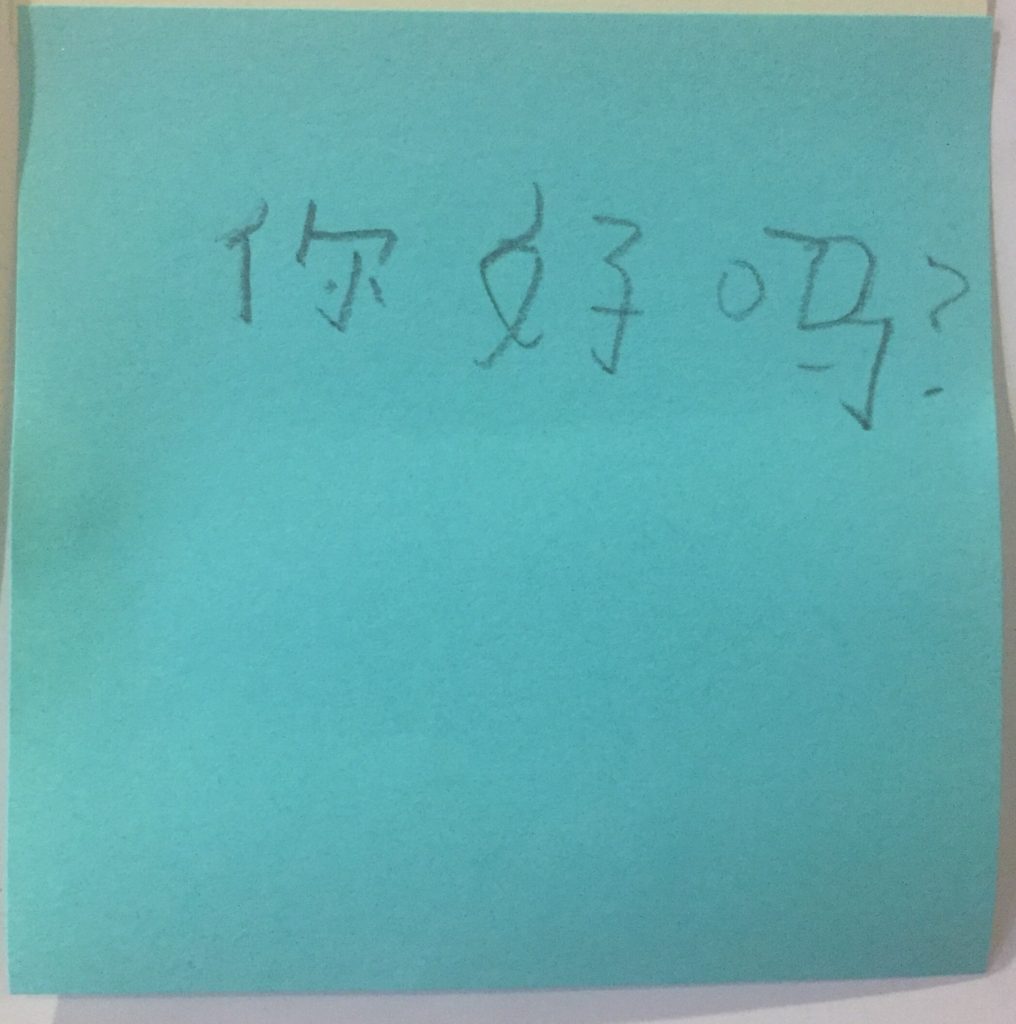
I’m fine, how are you?
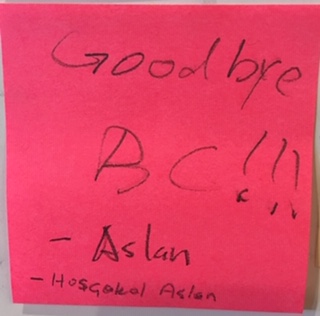
Güle güle!

Yes, I am happy to comment on your handwriting. It gives an impression of spontaneity and wholeheartedness, as close to calligraphy as one can get with a pencil on a 3×3 piece of paper and yet still be legible.
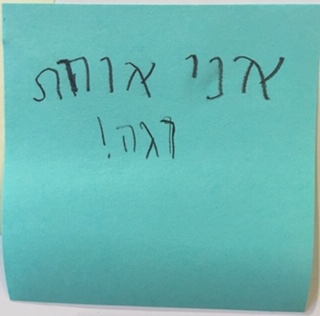
בהצלחה
![What is [redacted]'s favorite word?](https://library.bc.edu/answerwall/wp-content/uploads/2019/05/aw050719-13r.jpg)
IDK, better ask them. (Sorry about redacting the name. Policy.) My own favorite word is squinch. I like both the sound and the concept: it’s the magical element of architecture that allows a square wall to meet a round, domed ceiling. What’s your favorite word?

This concluding excerpt of a poem by the Qing Dynasty poet Nalan Xingde resonates with the present, or with any era, really: Looking at a prior dynasty or revolution, you see a different world. The rise and fall of empires is not man-made, but willed by fate.
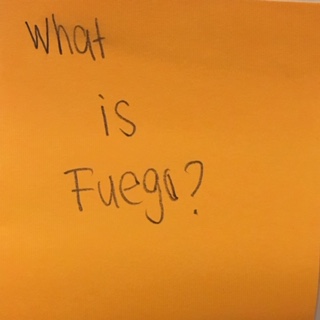
According to Urban Dictionary, it means really cool..But there are 6 other possible uses that they describe: bit.ly/FuegoMeans. I’d be careful using it – you’re playing with fire… unless you mean… FuegoDelCorazonBC… in which case you’re playing with fire!
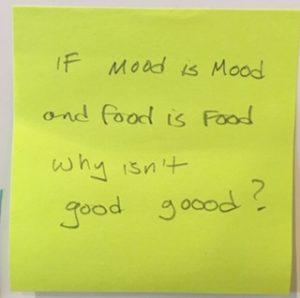
Short answer: English is weirder than a bread beard. Longer answer: Modern English is a mix of Old English & Anglo Saxon (Germanic), Norman (French), and Latin, with many other loan words acquired through trade & colonies. No effort was made to standardize English orthography (IOW spelling) until Samuel Johnson’s A Dictionary of the English Language in 1755. “Mood” was often “mode” or “mod” until around 1600. “Food” was “foda” in Old English, then “fode” “fude” and “foode” before finally settling on “food” in around 1700. “Good” was, in Old English, “god,” “godum” “godra” and “gode”, and then variously “gowde,” “guyde” goud” “gowid,” etc., “Good” began appearing about 1400 or so. Take pity on anyone who has to learn English as an adult.